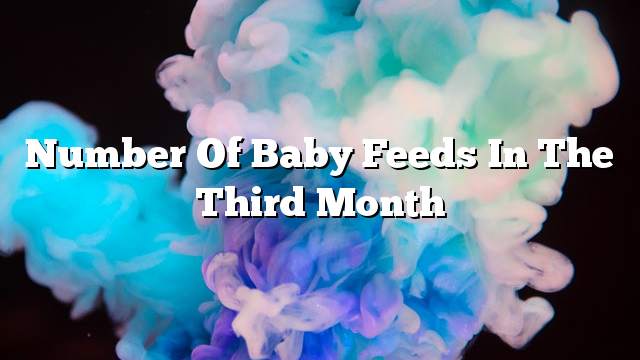Child Feeding
Nutrition is one of the most important aspects of a mother’s concern for her child, and the conscious mother seeks to do the best for the health of her children. Healthy nutrition is the beginning of a healthy life for a person. Balanced nourishment from the first day of a child’s life gives him a healthy body with his vital functions and processes, a healthy and fit appearance, as well as a naturally growing and developing brain.
It is known that every stage of human life needs a certain amount and quality of food, preferably not too much or less, and this applies to newborns and infants as well.
Number of baby feeds in the third month
The third month of the baby’s life is experiencing significant changes in growth. The child is more close to his parents and is more attracted to his surroundings. His muscles are strong. He is kicking his legs all day. He wants to hold the games with strong hands. They can move during sleep, which are great developments compared to a two-month-old child who does not move or play much. All of this development definitely needs to increase the feeding meals.
In the third month, the child depends entirely on milk for feeding, whether breast milk or formula milk. The baby needs between 6-7 servings per day at the age of three months. The crying spells of the child at the age of three months is common, and despite the many reasons, but hunger is one of the most important, and the mother must keep pace with changes in the child’s appetite and the amount of meals.
Breastfeeding
A mother who breastfeeds a child can increase the number of times the baby is breastfed for a few days in a row so that her body can produce more breast milk.
At the same time, the breastfeeding mother advises that the infant should not be less than an hour and a half, so that the sucking child does not get used to breastfeeding, which will lead to a more disturbed feeding system and stress of the mother.
Breast feeding
In the third month, the child who breastfeeds continues to eat the same milk as he has since the birth and continues with it until the sixth month, but it usually increases in the third month. The child needs about six feeds per day, and each feed is 120-180 milliliters Child appetite.
Every mother knows her child’s need for crying and crying as evidence of hunger. However, doctors advise mothers to periodically check the baby’s growth and development, because each child is a special case.
